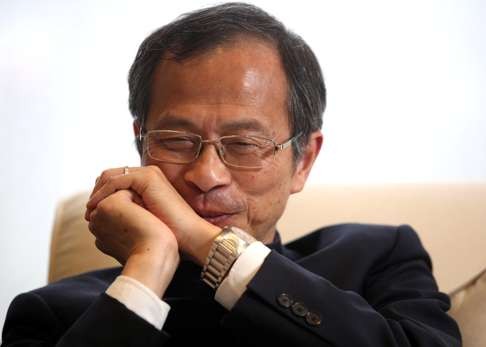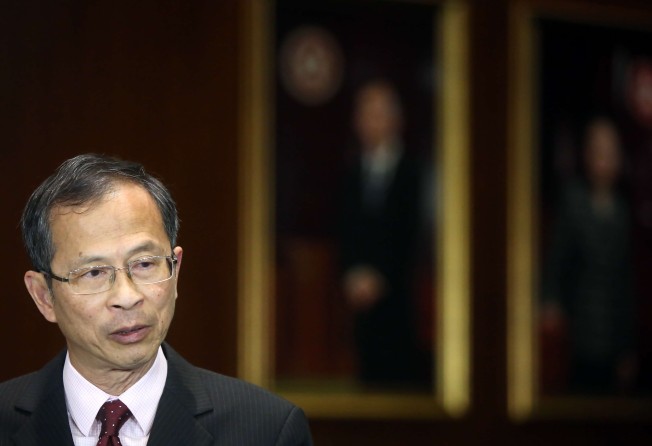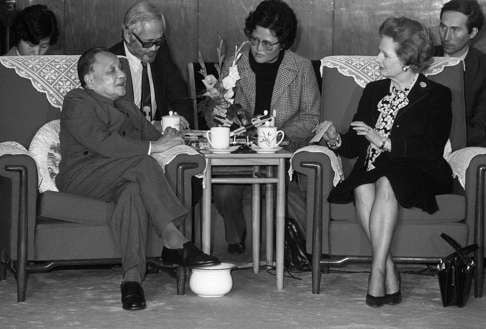
Farewell, Jasper Tsang – the city’s most intelligent politician
Gary Cheung says Tsang has moved from Beijing loyalist to advocate of a more lenient approach to relations between Hong Kong and the mainland

This Wednesday, Jasper Tsang Yok-sing will chair the last weekly meeting of the current term of the Legislative Council in the capacity of its president. Barring any accident, Tsang’s three-decade political career will come to an end. He will teach parliamentary procedures at the Chinese University starting from September and continue his work at his think tank.
In deeply divided Hong Kong, one of the few things different political factions can agree on is that Tsang is arguably the most intelligent and colourful politician in the city.
In 1968, he graduated with first class honours from the University of Hong Kong’s mathematics department, and received offers from four prestigious universities in the United States for further studies. But he declined those offers and instead joined the pro-Beijing Pui Kiu Middle School as a teacher.
Tsang has been a staunch defender of Beijing’s policies towards Hong Kong since he founded the Democratic Alliance for the Betterment of Hong Kong in 1992. But he turned himself into an advocate of a more lenient approach in handling Hong Kong affairs after taking up the Legco presidency in 2008.

He raised eyebrows when he warned in a hard-hitting interview with the Post that if Beijing stepped in on Hong Kong’s internal affairs more frequently, it could spell the demise of “one country, two systems”. He even criticised Beijing’s white paper on Hong Kong for highlighting the central government’s “comprehensive jurisdiction” over Hong Kong in an “unruly and unsophisticated” manner. The controversial document, which was issued in 2014, sparked fears in the city that the high degree of autonomy Hong Kong enjoys will be undermined.
In recent years, the pro-Beijing heavyweight has been calling for dialogue between the central government and pan-democrats in the hope of forging a consensus on political reform in Hong Kong. Tsang is adamant that “one country, two systems” is not feasible if Beijing is determined to undermine the pan-democrats, who enjoy support from more half of the voters in the city.
Tsang, known for his mastery of Mao Zedong (毛澤東) thought, believes that internal factors contribute fundamentally to changes taking place within the society; external factors only provide the conditions for change. Citing Mao’s On Contradiction, which was written in 1937, Tsang argued in a recent interview with me that when we look at conflicts within Hong Kong society and those between Hongkongers and Beijing, we should first try to find out the internal factors giving rise to these conflicts. Putting the blame on “external forces”, as suggested by some mainland officials and academics, doesn’t help.
Tsang, who failed in his first attempt to win a directly elected Legco seat in 1995, should be flattered that a growing number of people want him to be chief executive, though he has never confirmed or denied whether he is a Communist Party member.

Tsang, who was present at a meeting in 1984 in Beijing when Deng Xiaoping ( 鄧小平 ) gave assurance for Hong Kong’s high degree of autonomy after the handover, is increasingly worried about the vicious circle of Beijing’s growing assertiveness towards Hong Kong’s affairs and the resultant backlash from Hongkongers.
Loushan Pass, a poem Mao wrote after the Red Army’s hard-fought victory in Guizhou (貴州) in 1935, may best sum up Tsang’s thoughts about the uphill battle to implement “one country, two systems”: The strong pass looks like a wall of iron, / With firm strides we are crossing its summit.
Gary Cheung is the Post’s political editor